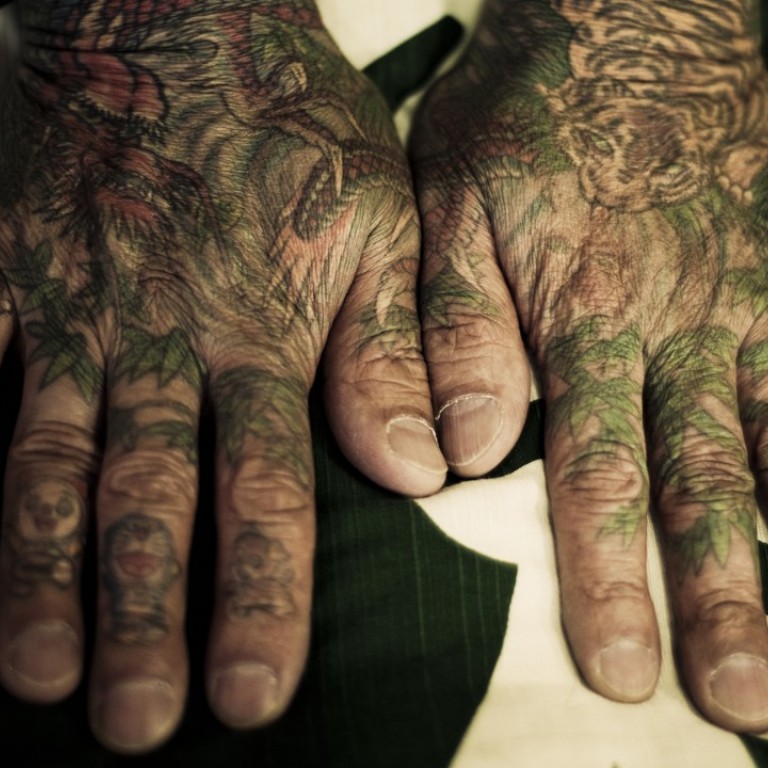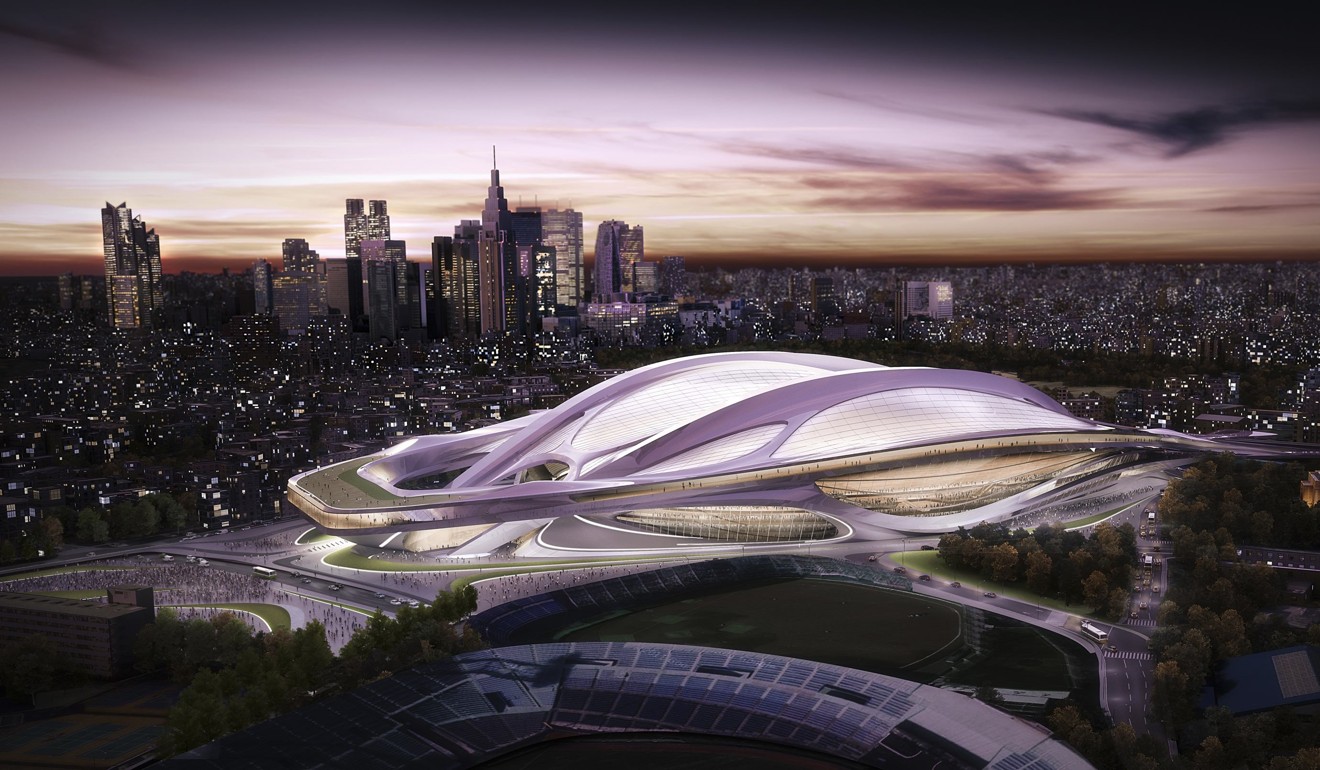
Japanese yakuza are recruiting homeless people to build infrastructure ahead of 2020 Tokyo Olympics
The involvement of the underworld in Japan’s construction sector is well documented, although latest arrests may signal a crackdown on the gangs’ activities in the run-up to the Games
Six members of one of Japan’s most notorious underworld groups have been arrested for illegally brokering the hiring of labourers for the construction industry, which is suffering a chronic shortage of workers as it attempts to meet the schedule for facilities for the Tokyo 2020 Olympics.
Police said the six men were arrested on Wednesday and included Mitsunobu Hiroo, the 69-year-old head of a gang with links to the Tokyo-based Kyokuto-kai crime syndicate. The Kyokuto-kai was designated as a violent criminal organisation in 1993, although it still operates in at least 14 prefectures.
In the early years of the previous decade, the 1,200-strong yakuza group was involved in a violent turf war with the Matsuba-kai syndicate that led to a number of shootings.
South Korean naval ships will dock in Japan, aiming to resolve row over ‘rising sun’ flag
The Asahi newspaper quoted police as saying Hiroo had admitted the gang had earned money by recruiting homeless men in the city’s Shinjuku district and sending them to construction sites around Tokyo.
Labourers were sent to a train station project in Tokyo, as city authorities are seeking to boost transportation links ahead of the Games.
Jake Adelstein, author of “Tokyo Vice” and an authority on Japan’s underworld, said it was “inconceivable” that gangs had ignored the construction boom associated with the Olympics.
“The yakuza have traditionally taken a 10 per cent cut of all revenue from construction projects in
Japan and clearly they are not going to stop at a time of a construction boom,” he said.
How the Tokyo 2020 Games are killing rainforests in Malaysia and Indonesia
“The shortage of labour for projects in Tokyo – including venues for the Games – is just too tempting for them to pass up,” he said, adding that Japan’s Olympics organisation had a long history of being close to the underworld.
For example, three years ago, Hidetoshi Tanaka, the vice-chairman of Japan’s Olympic Committee, was embarrassed by a photograph of him drinking with Shinobu Tsukasa, the head of the Yamaguchi-gumi, Japan’s largest yakuza syndicate.
Tanaka stepped down from his position earlier this year.
A book by Yoshinari Ichinomiya released after Japan was announced as the host of the Games, “2020 Black Money and the Tokyo Olympics”, warned the event would become an underworld free-for-all, including in the construction sector.
2020 Summer Olympics: the best Tokyo hotel and hostel deals after Airbnb crackdown
In a statement on Friday, the Tokyo 2020 organising organisation said it was “not aware of any involvement of anti-social forces in the construction of the Games venues”.
It pointed to its construction contracts’ terms and conditions that prohibited all parties involved in building Games sites and their subcontractors from having dealings with or membership of organised crime groups.
“Tokyo 2020 has not observed any infringement of these construction contracts,” the organisation said. “If a counterparty breaches any of its conditions, we reserve the right to terminate an agreement immediately.
“We have instructed contractors to strictly control access to each construction site; all contractors have accordingly drawn up lists of all authorised personnel and are enforcing security at site entrances.”

The number of homeless people in the capital has fallen in recent years, although there are still an estimated 5,000 individuals sleeping rough in Tokyo. Their need for cash has made them an easy target for yakuza trying to meet construction firms’ labour needs. There have been no reports of migrant workers being illegally hired to work on Games venues, although experts suggest it cannot be ruled out.
The gang was allegedly paid a fee by construction companies for providing a certain number of labourers each day, while it also took a percentage of the workers’ wages, which amounted to about 10,000 yen (US$90) per day.
The involvement of the underworld in Japan’s construction sector is well documented, although police may be publicly signalling a crackdown on the gangs’ activities in the run-up to the Olympics.
The authorities may be scrutinising the situation more closely now because they are concerned about being embarrassed
“The yakuza have been endemic in the construction industry all the way back to the immediate post-war era and I don’t think it is any worse now than it was then,” said Kyle Cleveland, a professor at the Tokyo campus of Temple University who specialises in social issues.
“In all those years, big corporations, construction companies and politicians have effectively enabled this to happen and it takes cases like this to reveal the chronic long-term reality of the situation.”
Yet change might be in the wind with the eyes of the world on Tokyo less than two years before the opening ceremony for the Olympic Games.
In Japan’s dying countryside, ancient festivals struggle to live
“The authorities may be scrutinising the situation more closely now because they are concerned about being embarrassed by any revelations in the coming months because it is important they be seen to be in compliance with international norms,” Cleveland said.
“This may indicate the government really wants to address the problem, although it might also indicate they want at least to be seen to be tackling the issue.”
The arrests came on the heels of more negative news related to the Olympics, after the Board of Audit suggested the total cost of hosting the Games was likely to reach 3 trillion yen (US$26.5 billion), significantly higher than the 1.35 trillion yen the city’s organising committee estimated in December 2017.
In an angry editorial, the Mainichi newspaper said the numbers were “completely different”, adding: “If it was known earlier that the total cost would be this enormous, more questions would have been asked about hosting the Games.”

